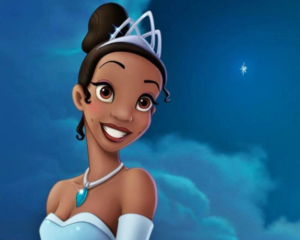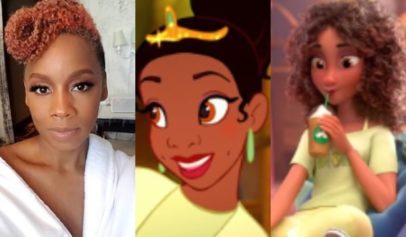
So it’s no surprise that one Black mother was left battling tears when her young daughter uttered the words no mother wants to hear.
“I just can’t be a princess.”
A curly-haired Prevy was only 4 years old when she delivered that heartbreaking message to her mother, Alicia Hadley.
After never seeing a Black princess that looked like her in her short life, Prevy decided that the braids in her hair were enough to strike down her dreams of being an intelligent, beautiful, admired and sought-after young woman.
“I just can’t be a princess because I have braids in my hair,” she told her mother, according to Hadley’s own essay about the matter published by NBC News.
Hadley said she forced her daughter to look at her as her little girl explained in more detail why she believed her braids disqualified her from possibly being a princess.
“I have to take my braids out so my hair can be like this,” she added as she made a gesture suggesting she wanted her hair to be straight.
That was the message Prevy received from the lack of varying images of princesses, queens, kings and princes in the media.
The one Black princess that made her way into the Disney spotlight flaunted long straight hair that largely resembled that of her white fellow Disney princesses.
Despite whatever words of encouragement Hadley always gave to her daughter, Prevy’s own observation of the world around her forced her to believe she couldn’t be a princess.
“It doesn’t matter if your hair is braided, straight, curly or in twists,” she told her little girl. “It doesn’t matter if it’s black, brown or blonde. It doesn’t matter what you look like on the outside. Being a real princess is more about what’s on the inside.”
But based on the small collection of Disney princesses and the portrayals of royalty in her daughter’s fairy tales, race did matter in the world of imagination.
The truth of the matter was that when it was time for Prevy to observe the world around her and start drawing certain inferences from her toys, stories and TV shows, there were hardly any Black female role models for her to look up to.
“Princess characters are depicted as the most beautiful, kind and fair; the princess is one who is honored and cherished,” she continued in the essay. “She makes important decisions, learns life lessons and overcomes obstacles—She’s an overall role model for young girls to follow. The same can be said for all royal characters.”
That’s when she noted that even Black men were missing from the fictional tales of royalty.
There were rarely Black princes coming to a Black damsels rescue and the lack of Black kings made it seem as if Black men were never able to hold such positions of power and authority.
“Our young black girls aren’t seeing black women as honored and cherish,” she added. “Our black boys aren’t seeing black men as heroic and respected. Therefore, black children, as a whole, are taught that whites are most valued, beautiful and handsome.”
It’s a problem that has long been noted by scholars and current content creators but little has happened to actually disrupt the current whitewashed landscape of fictional royalty that easily influences young children.
That’s where Hadley believes the Black community has to become more involved and less patient.
Instead of waiting for a media company to bend to Black parents’ wishes, Hadley insists that parents create those alternative stories on their own.
“We’re living in an era where blacks have more opportunities than ever before,” she insisted. “Technology has afforded more of us the opportunity to produce films, cartoon animation and programming. Self-publishing has created new opportunities for our aspiring authors. And we’re wealthier than we’ve ever been.”
Hadley has since kicked off “ The Regal Project,” a personal initiative calling on parents to create racially diverse tales of princesses, princes, kings and queens in a way that doesn’t have to be “Afrocentric” but at least gives Black children the completely accurate perception that they too are royalty and should be treated as such.


